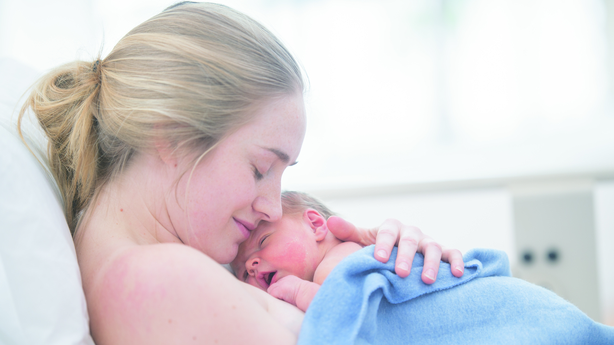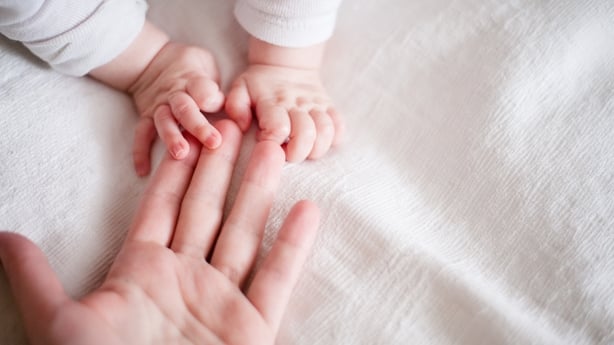As the saying goes, there's a lot we know to expect when we're expecting, but what comes after – or during – a birth is still relatively lesser known.
Many women experience frightening, painful or harrowing births that leave them with birth trauma, even if they don't realise they have it or not.
Maria Saunders – a midwife, birth trauma resolution practitioner, and the founder of Restorative Birth – joined Louise McSharry on 2fm to discuss how many people experience debilitating traumatic symptoms post-birth, and how they can empower themselves and restore confidence.
"For most women they do have, thankfully, straight forward births, but for others unfortunately it may not go exactly as they may have wished", Maria says. "The key part of it is that there isn't one particular type of birth that can cause birth trauma. Many women may not even realise that it's something they're experiencing."

Louise shares that while pregnant with her first son, she was induced and two weeks overdue. After birth, he was rushed to the Neonatal Intensive Care Unit, leaving Louise to realise that "my baby was born... but I didn't know what he looked like. I couldn't go to him because I'd had an epidural.
"I was upset and I was shook but I don't think I realised, possibly even years later, that I was quite traumatised by that."
Maria adds: "When I speak to women around their birth, I say it's your own perception of your birth that's really important and what your feelings are. Oftentimes women may hear well-intentioned advice such as, 'You have a healthy baby', or 'It's over now' and sometimes women have nowhere to go with those feelings, when they know the birth has had a sometimes devastating effect on them."
"Psychological trauma, it's quite invisible as well", she adds. "If you were to say to anyone in any situation that you felt unsafe or you weren't listened to, there was poor communication, if you had an operation people may understand that more." There is still less understanding when it comes to traumatic births, she says.

How do you know if you've had a traumatic birth? Maria says it can be feeling "quite in shock, quite tearful when they talk around their birth".
"We have what's called a natural healing process in the brain, so what's really important for anybody that looks after women, particularly in the post-natal period, is validating what's happened to them. That might be just to listen and to be there for them." She suggests giving women a few weeks time to have that healing process to process the experience and avoid the trauma "snowballing".
"Sometimes levels of anxiety can start to snowball into one another and women can start to have symptoms such as flashbacks, nightmares, sleep disturbance. It starts to affect their relationships", Maria adds.
Maria is keen to stress the difference between post-natal depression and birth trauma, however. Intrusive memories of the birth, nightmares and feeling anxiety are all symptoms of birth trauma.
"It's a difficult time and we try to support women as best we can through it."
For more information on Birth Trauma and Post Traumatic Stress Disorder, visit MyExpertMidwife.ie.
Listen to the full interview above or by clicking here.


